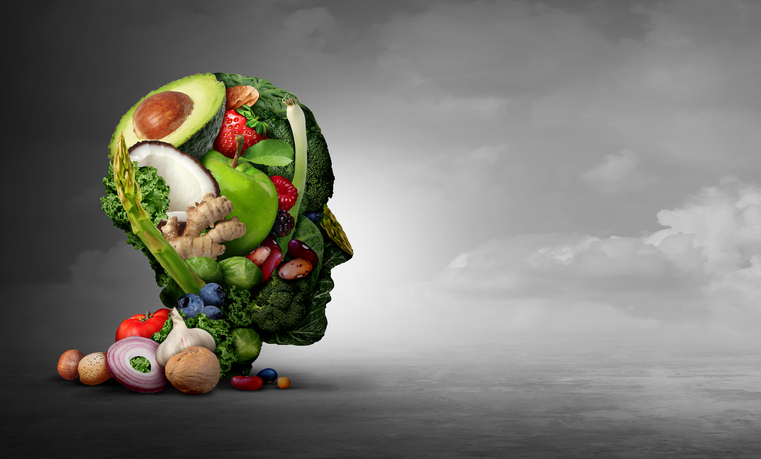How Diet Impacts Mental Health
Posted November 03, 2023

Diet affects your cognitive function. A healthy diet can improve concentration and attention span and promote clear thinking. Conversely, an unhealthy diet can contribute to fatigue, decrease reaction time and worsen your decision-making ability. This article provides guidance on how you can eat for a healthy mind.
Foods That Negatively Impact Mental Health
Certain foods have been linked to mental health issues. Eating too much sugar and processed foods can cause inflammation in the brain and body, contributing to depression, stress and anxiety. Unfortunately, stress and depression often exacerbate poor eating habits, such as skipping meals or binge eating, and can make healthy eating a challenge.
If you’re feeling anxious or stressed, it may be beneficial to examine your diet and limit your intake of the following:
- Caffeine
- Alcohol
- Added sugars
- Saturated fat
- Fried foods
Foods That Positively Impact Mental Health
In the same way an unhealthy diet can exacerbate mental health problems, a nutrient-rich diet can promote emotional and mental health. In particular, you should focus on eating foods that contain omega-3 fatty acids, folate, iron, magnesium, zinc, B vitamins, and vitamins A and C.
The following foods promote positive mental health:
- Dark, leafy greens
- Lean proteins
- Whole grains
- Complex carbohydrates (e.g., brown rice and quinoa)
- Berries
- Citrus fruits
- Salmon
- Eggs
- Nuts and flaxseeds
- Vegetables
Creating Healthy Eating Habits
Changing your eating habits won’t happen overnight. Plan ahead and go easy on yourself if you make mistakes. It’s crucial to remember that a single meal or slip-up doesn’t determine a healthy or unhealthy diet. Begin with small changes and remember the bigger picture as you work to exchange unhealthy foods with more nutritionally dense ones. The following practices can help you eat foods that can benefit your mental health:
- Have healthy snacks (e.g., nuts, fruit and hard-boiled eggs) available at your desk to stave off sweet cravings.
- Avoid eating foods or drinks that lead to energy crashes and impair your ability to concentrate (e.g., soft drinks and candy).
- Create a healthy shopping list and stick to it in the store.
- Make small swaps (e.g., whole grains instead of refined grains or seafood instead of red meat) to get started.
- Pay attention to how you feel when you eat and after.
- Be mindful of emotion-driven eating and find alternatives to overeating when stressed.
- Get a good night’s sleep. Inadequate sleep can cause you to overeat and drink excessive amounts of caffeine.
- Eat at regular intervals to help you maintain a balanced diet. This will also keep your metabolism high and your stomach digesting optimally.
Conclusion
The foods you eat can significantly impact your mental health and emotional state. Eating a nutrient-rich diet low in processed sugar and saturated fat can increase your focus, improve your cognitive function and decrease your risk for mental illnesses, such as anxiety and depression.
Contact us today for further guidance on how to create a mentally healthy diet.
